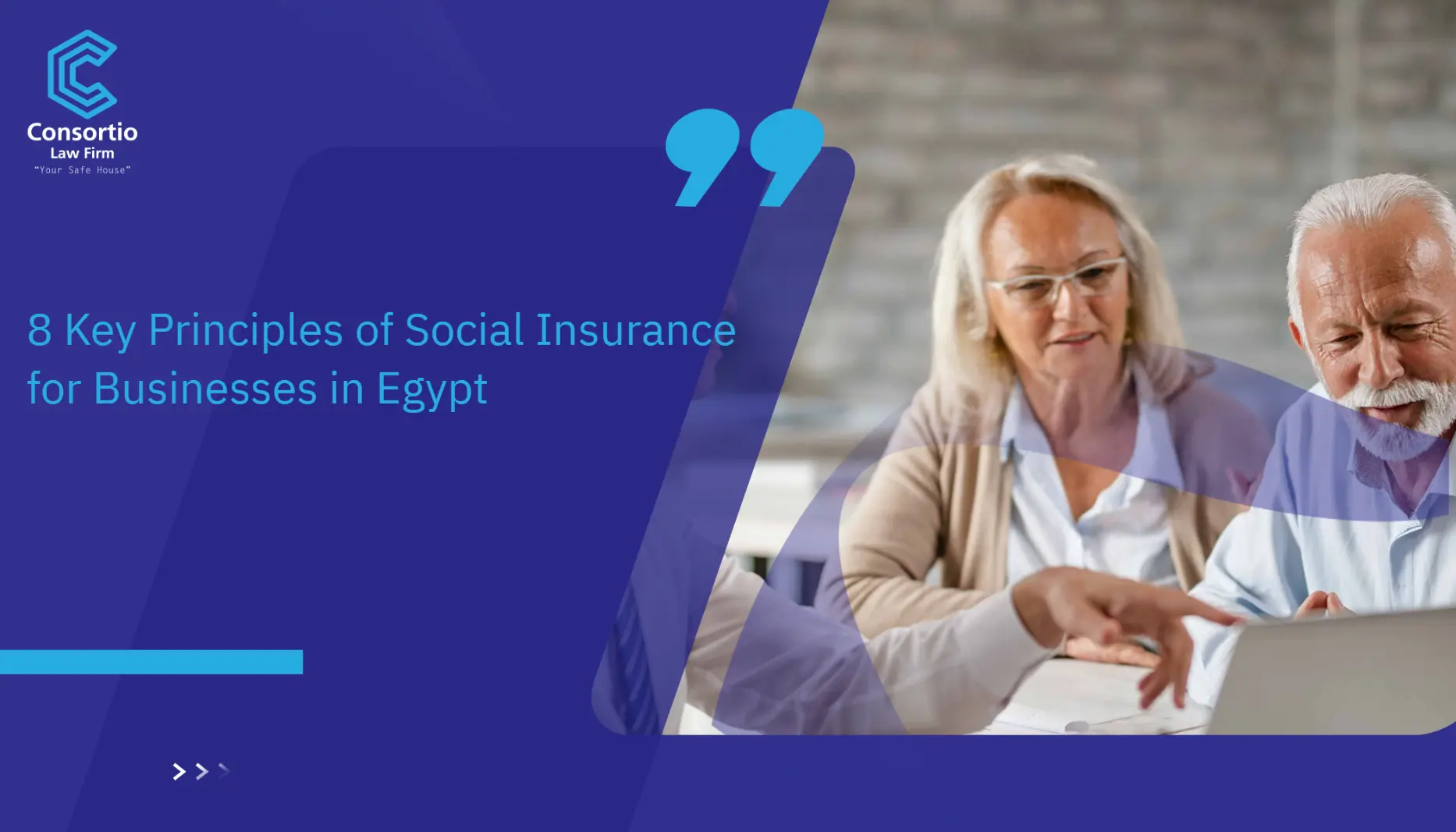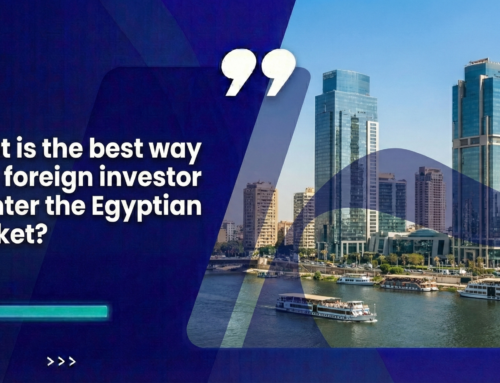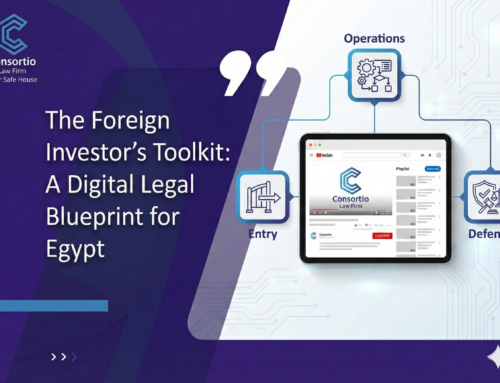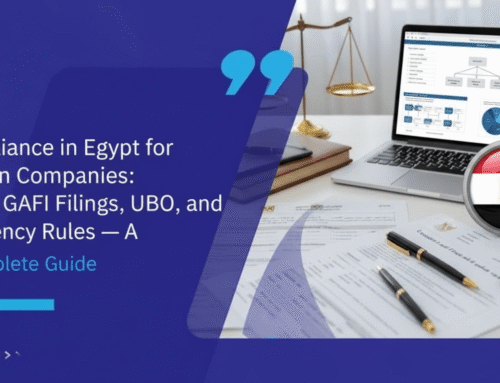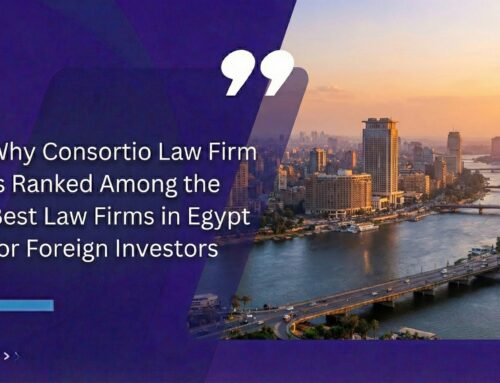Navigating the business world in Egypt today means more than just chasing profits, it demands a deep understanding of the Principles of Employment Law that protect your workforce and strengthen your company’s foundation. Beyond legal requirements, they offer businesses a unique chance to foster employee loyalty and access valuable benefits that fuel growth.
Key Principles of Employment Law for Businesses in Egypt
Employment Law in Egypt is regulated mainly by Law No. 148 of 2019 (Employment Law and Pensions Law). This law mandates that all employers register themselves and their employees with the National Organization for Employment Law (NOSI).
Below are the essential principles businesses should know:
-
Compulsory Participation
In Egypt, Employment Law is mandatory for formal sector workers. Employers and employees must contribute, ensuring wide coverage and protecting many workers through collective participation.
-
Social Solidarity / Risk Sharing
The system pools contributions to support not just workers but their families too. This shared responsibility helps provide benefits like survivor pensions, promoting social solidarity.
-
Contributory Financing
Egypt’s Employment Law is mainly funded by contributions from workers, employers and the government. These regular payments finance pensions, healthcare and other benefits.
-
Earnings-Related Benefits
Benefits in Egypt depend on how much a person has earned and contributed. This link between wages and payouts helps maintain fairness and motivates continued participation.
-
Defined Benefits
Employment Law benefits in Egypt are guaranteed by law. Workers receive pensions, disability allowances or healthcare when they meet specific conditions like contribution years or age.
-
Non-Profit and Public Management
The system is run by public agencies such as the National Organization for Employment Law, focusing on social protection rather than profit, ensuring transparent management.
-
Universality / Broad Coverage
Egypt aims to cover all formal workers through Employment Law. However, informal workers often remain outside the system, which limits full universal coverage
-
Redistribution
Egypt’s system redistributes resources by offering minimum pensions and family benefits. This helps support low-income workers and vulnerable groups, promoting equity.
By embracing these essential Principles of Employment Law, businesses unlock not only legal compliance but also enhanced employee loyalty, financial security and a competitive edge that drives sustainable growth.
How Startups and SMEs Can Navigate Employment Law in Egypt?
Startups and SMEs in Egypt often face unique challenges when managing Employment Law, but understanding the system and complying early helps avoid penalties and build employee trust.
Here’s how they can approach it effectively:
-
Understand Legal Obligations
Startups and SMEs must register with the National Organization for Employment Law (NOSI) once they hire employees. It is mandatory to enroll all eligible workers in the Employment Law system under Law No. 148 of 2019 (the Unified Employment Law Law).
-
Register the Business and Employees
Upon establishment, the company must:
- Register itself with NOSI.
- Enroll each employee in the system.
- Submit employee contracts and salary details to determine contribution levels.
This process ensures legal compliance and protects both the employer and employee.
-
Know the Contribution Rates
As of the latest regulations:
- Employees contribute around 11% of their salary.
- Employers contribute approximately 18.75%.
These percentages apply to the employee’s total insurable wage and cover pensions, disability, death and unemployment (for certain sectors).
-
Budget for Contributions
Startups should plan their financials to include Employment Law costs. Failing to pay regularly can lead to fines, legal issues or denial of future government support or tenders.
-
Stay Updated with Changes
Employment Law laws and regulations can change. SMEs should stay informed by regularly checking official NOSI announcements or consulting experts to ensure ongoing compliance.
-
Seek Professional Help When Needed
Due to the complexity of compliance, it’s wise to work with legal experts familiar with Egyptian labor and Employment Law law to avoid costly mistakes.
For businesses in Egypt, mastering the principles of Employment Law is more than just ticking regulatory boxes, it’s about building trust, stability and a future-proof workforce. Thus, having an expert legal partner by your side is an essential step.
At “Consortio Law Firm”, we specialize in guiding businesses through the complexities of Egypt’s Employment Law system. From registration and compliance to strategic planning and dispute resolution, our expert legal team ensures your business meets all legal obligations while maximizing benefits for your employees.
Don’t wait until compliance issues slow you down.
Contact us Today for expert advice about Employment Law Meaning in Egypt, via:
Phone number: 002-01028806061.
Via: WhatsApp.
Email: Info@consortiolawfirm.com.
FAQ’s
-
What happens if a business fails to comply?
They face penalties. It may include fines, back payments and legal liability.
-
Are self-employed individuals covered?
Yes. Self-employed professionals can voluntarily join and pay contributions themselves.
-
Can foreign employees be covered?
Yes, if they reside legally in Egypt and their countries have reciprocal agreements or they meet the requirements set by Egyptian law.
-
How do businesses register for Employment Law?
Through the Employment Law Authority by submitting required documents including the business license, tax card and employee details.
